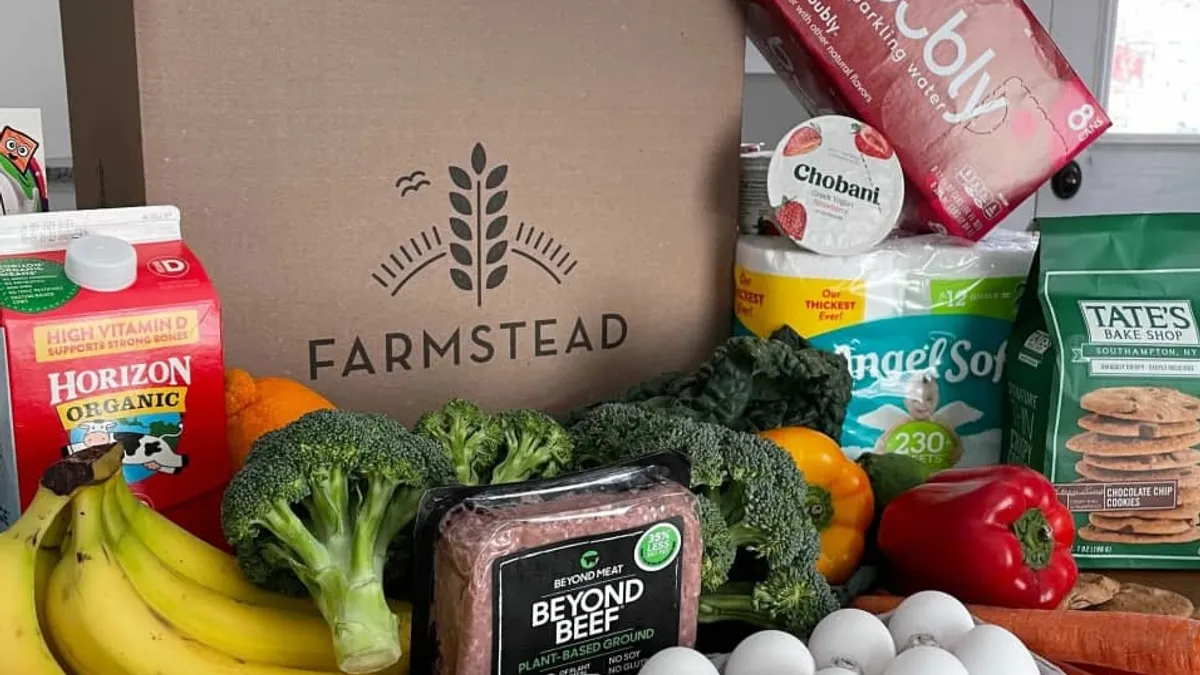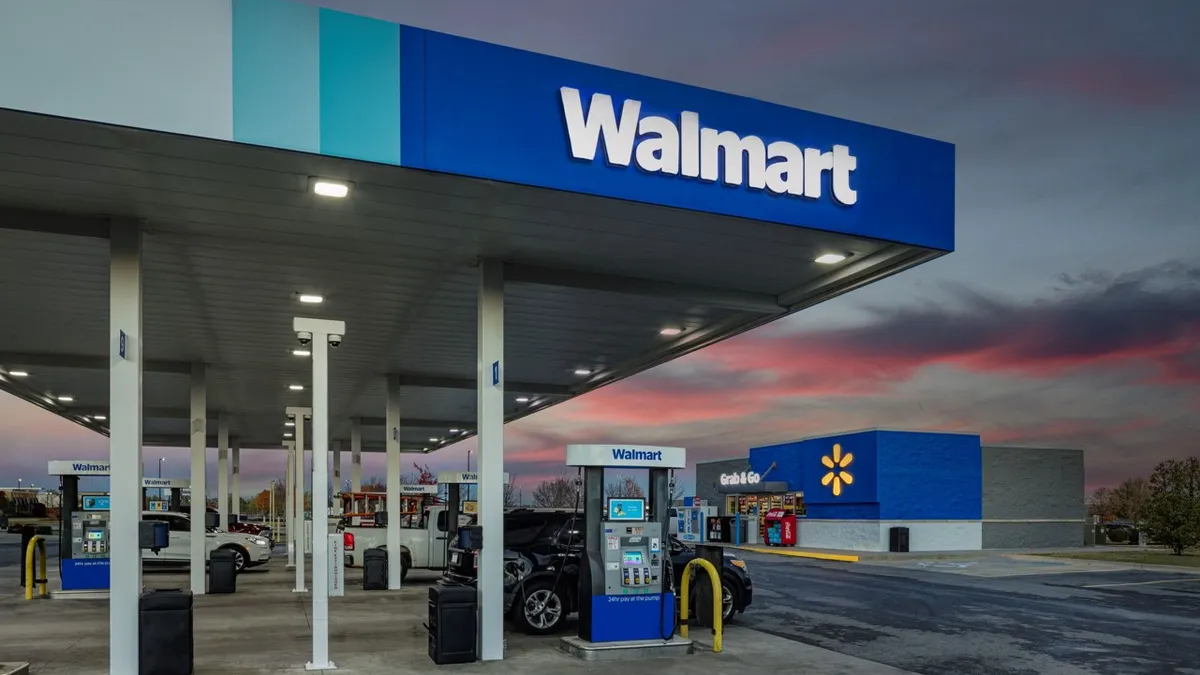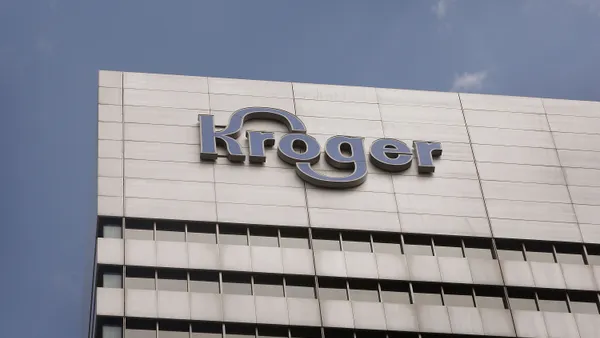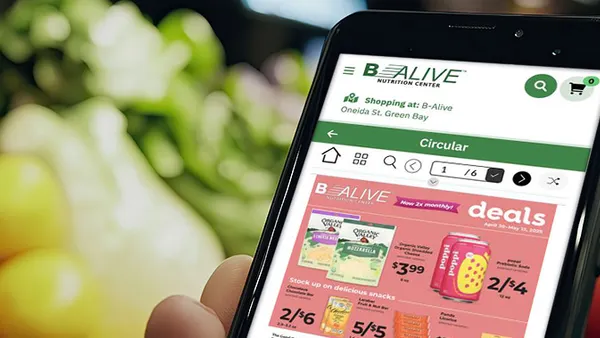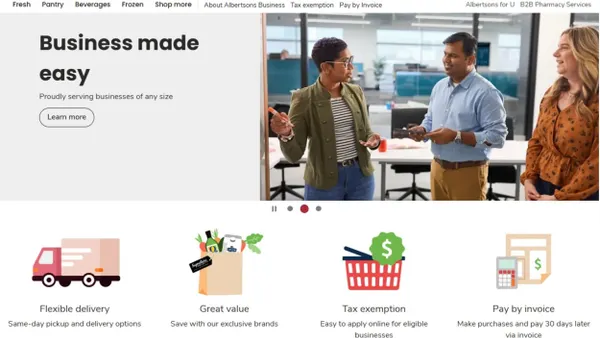Dive Brief:
- E-grocer Farmstead has grown its package of e-commerce capabilities it markets to other food retailers, now allowing them to stand up a dark-store delivery operation in two weeks, according to a press release on Thursday.
- The e-grocer has started marketing access to warehouse space and "multiple" last-mile delivery services. Farmstead is offering the services in connection with its Grocery OS grocery delivery-management software, which the company began making available to grocers in 2020.
- The California-based company is beefing up its suite of e-commerce tools as it continues to build its own grocery delivery business.
Dive Insight:
Farmstead says the array of tools it has assembled can allow a grocer to build a dark store operation in as little as two weeks because it bundles everything necessary to establish an e-commerce presence into a single service.
The company has hammered out deals with national real estate companies to pave the way for grocers to quickly secure space to store products and assemble orders, said Farmstead co-founder and CEO Pradeep Elankumaran. Farmstead also has established relationships with several third-party delivery companies, including DoorDash, with which it partnered in April to provide one-hour delivery service.
Farmstead said it guarantees the grocers it works with will be able to provide two-hour service within a 50-mile radius. It also offers the option to make deliveries in an hour or less.
Elankumaran said Farmstead is motivated by its sense that grocery delivery services tend to be so expensive that grocers cannot operate them viably without passing on unacceptably high fees to shoppers. The result is that, while grocery delivery services may appeal to high-income people able to absorb the fees, they are a burden for other shoppers, he said.
"It's distressing to me and to the Farmstead team that we wind up kind of ignoring the other 85% of the population, who have a pretty large grocery budget every week, but it's a very rigid grocery budget," Elankumaran said. "And if you're asking them to spend another $20 to $25 in fees each week, it becomes very untenable. And as a result, they may try you, but they will not stick with you as an online grocery brand."
Elankumaran said Farmstead has focused on developing software that makes it possible for grocers to operate dark store delivery services so efficiently that they can turn a profit without charging delivery fees. Farmstead can achieve this by using its software to predict what people will want to buy to raise the chance that those items will be in stock while at the same time reducing the amount of food that goes to waste, he said.
"The opportunity for us is: Can we rebuild this entire architecture of grocery and online grocery from scratch with code to enable a newer path?" Elankumaran said.
Farmstead has demonstrated through its own grocery service that its method makes it possible to accomplish this when assembling orders and believes its integrated approach to e-commerce can offer the same benefits to other grocers, he said. Farmstead currently operates in the San Francisco Bay Area; Raleigh and Charlotte, North Carolina; and Miami, he said. This spring, the e-grocer noted plans to expand to several markets by the end of this year. It hasn't yet started service in Austin, Texas, and Nashville, Tennessee, — two cities it previously said it intended to enter this year.
"All in all, we're able to give customers an experience that is vastly different than what came before Farmstead, while at the same time actually having a shot as a company to make money per order," said Elankumaran.



